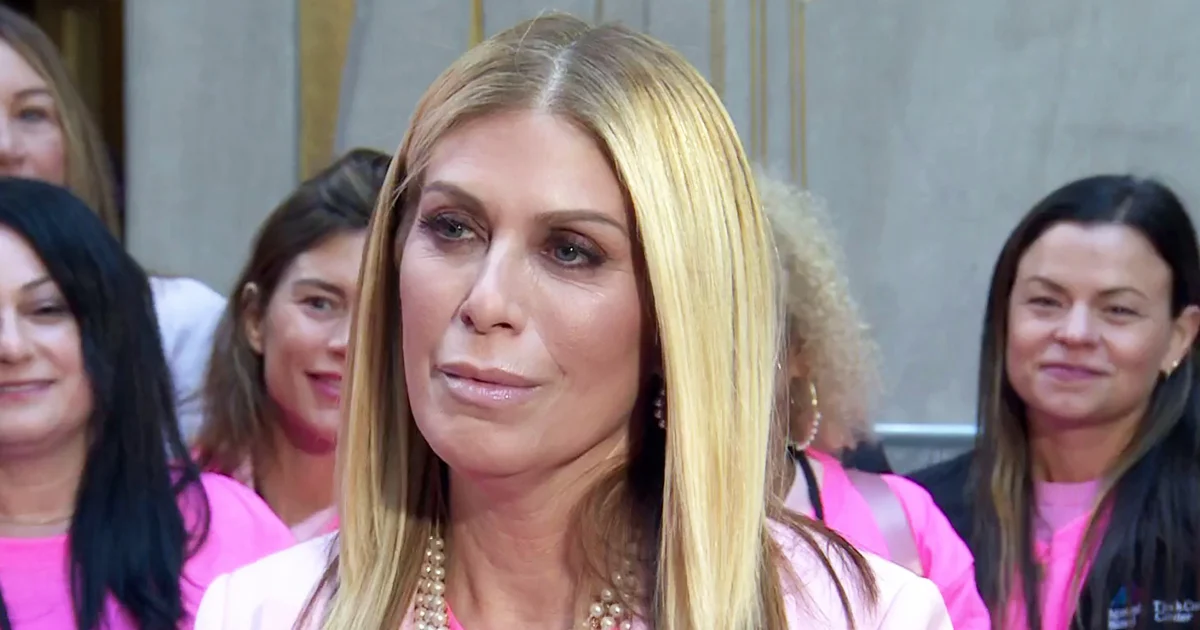
In honor of Breast Cancer Awareness Month, the TODAY show, with the help of breast cancer survivors Jill Martin and Sheryl Crow, hosted Pink Power, an event dedicated to encouraging viewers and fans to take their health into their own hands.
Crow, who learned she had breast cancer in 2006 at 44 years old with no family history, advocated for early detection before getting on stage to perform her hit songs.
On the TODAY Plaza, Jill, Shop TODAY contributor and breast cancer survivor, gathered as many people as she could to sign up to take a genetic test for cancer risk — the very test that changed her life in 2023.
A genetic test only takes seconds to complete, and can provide important information about one’s health and family health history. These tests look for mutations in genes associated with an increased risk of certain cancers, such as breast and colon cancer.
“Anyone with a family history of breast cancer or ovarian cancer, particularly in a relative who’s at a young age” should consider testing, Dr. Elisa Port, director of the Dubin Breast Center of the Tisch Cancer Institute at Mount Sinai, and Jill’s surgeon, previously told TODAY.com.
“We all have these genes, one from your mother and one from your father,” Port said during the TODAY Pink Power segment on Oct. 1, 2025. “If the cell has damage in the DNA, it can spiral out of control and form cancer.”
Those with a family history of pancreatic and prostate cancer should consider testing, too, Port said. She also recommended that those in ethnic groups with a higher risk of breast cancer take a test, such as Ashkenazi Jews (though people of any ethnicity can have a genetic mutation that increases their cancer risk).
In Jill’s case, the genetic test she took two years ago showed she was positive for the BRCA2 gene mutation, which led to her Stage 2 breast cancer diagnosis. A surprise, since she’d recently had a clear mammogram and sonogram. Martin inherited the mutation from her father, despite having a history of breast cancer on her mother’s side.
“Had I taken (a genetic test) earlier, I wouldn’t have had to go through endless surgeries and chemotherapy and radiation,” Jill previously told TODAY.com. “Genetic testing is power, not something to be scared of.”
The genetic test Jill took concluded her odds of developing breast cancer were 60 to 90 %. “The cancer was on the move,” she recalled. “No parent it going to give their child that odds,” she added.
Now, there’s something parents can do.
In fact, one of Port’s patients who tested positive for the BRCA gene mutation successfully implanted a frozen embryo without the BRCA gene via in vitro fertilization, so her family’s breast cancer risk will end with her.
Testing, said Jill, is a game-changer that can help lower the odds of passing on genetic mutations.
To treat her breast cancer, Jill underwent a double mastectomy and breast reconstruction surgery, along with chemotherapy and radiation. She also had her ovaries and fallopian tubes removed. Today, she’s cancer-free.
Experts advise undergoing genetic testing with the help of a genetic counselor, who can share what to do based on the results and work with your physician. If you’re concerned about your risk for hereditary cancers, talk to your health care provider.



